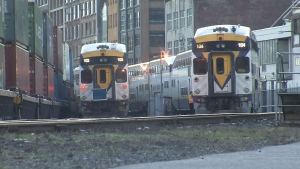TransLink, the public transportation agency for Metro Vancouver, has taken a significant step towards reducing its carbon footprint. The agency has announced that it will be converting its West Coast Express commuter train to run on renewable diesel.
This move is part of TransLink’s commitment to sustainability and reducing greenhouse gas emissions. The West Coast Express, which runs between Mission and Vancouver, is a popular mode of transportation for commuters in the region. By switching to renewable diesel, TransLink estimates that it will reduce its carbon emissions by 80%.
Renewable diesel is a cleaner alternative to traditional diesel fuel. It is made from renewable sources such as vegetable oils, animal fats, and waste oils. Unlike traditional diesel, it produces significantly lower levels of pollutants and greenhouse gases.
According to TransLink, the conversion process will begin in early 2022 and is expected to be completed by the end of the year. The agency has already started the necessary preparations, including working with its fuel suppliers and conducting tests to ensure the train’s compatibility with renewable diesel.
This move is part of TransLink’s larger sustainability strategy, which includes transitioning its entire bus fleet to zero-emission vehicles by 2050. The agency has also set a goal to reduce its greenhouse gas emissions by 45% by 2030.
In addition to reducing its environmental impact, the switch to renewable diesel is also expected to save TransLink money in the long run. The agency estimates that it will save approximately $2.5 million annually on fuel costs.
This announcement has been met with praise from environmental groups and commuters alike. It is seen as a significant step towards a more sustainable and greener future for public transportation in Metro Vancouver.
In conclusion, TransLink’s decision to convert the West Coast Express to run on renewable diesel is a significant milestone in its efforts to reduce its carbon footprint. This move not only benefits the environment but also saves money and sets an example for other transportation agencies to follow.




